Dreaming the impossible dream: Quintana's bid for Giro-Tour glory
Giro countdown: 5 days to go!
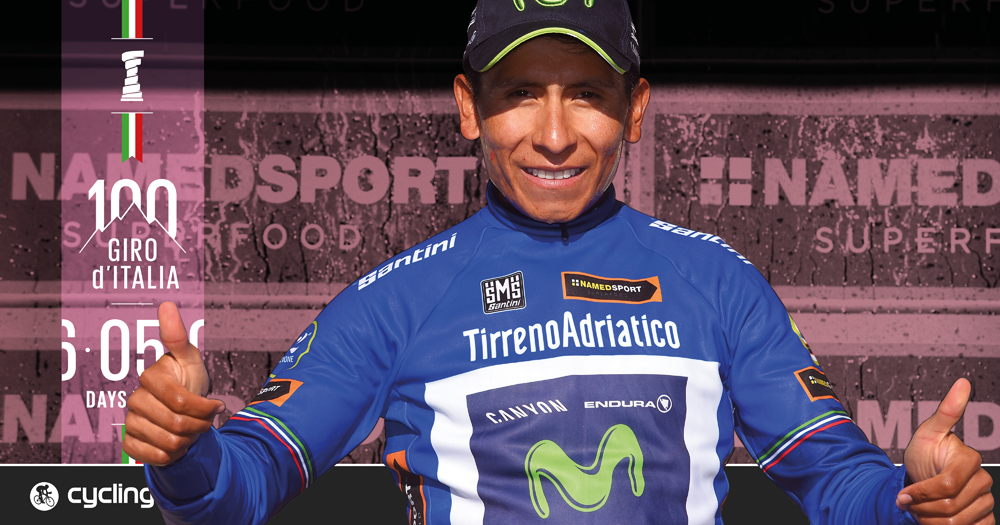
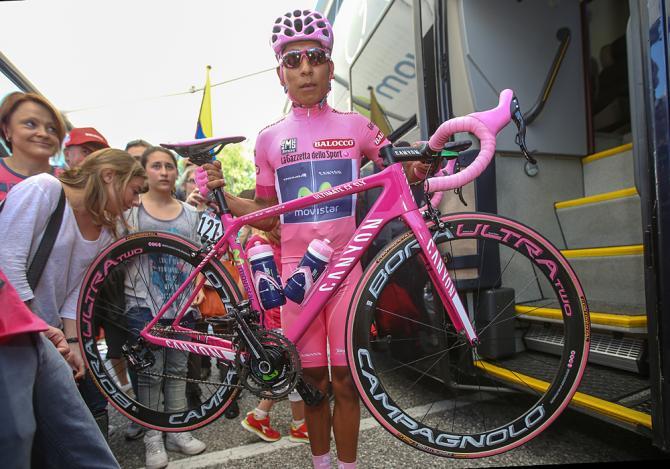
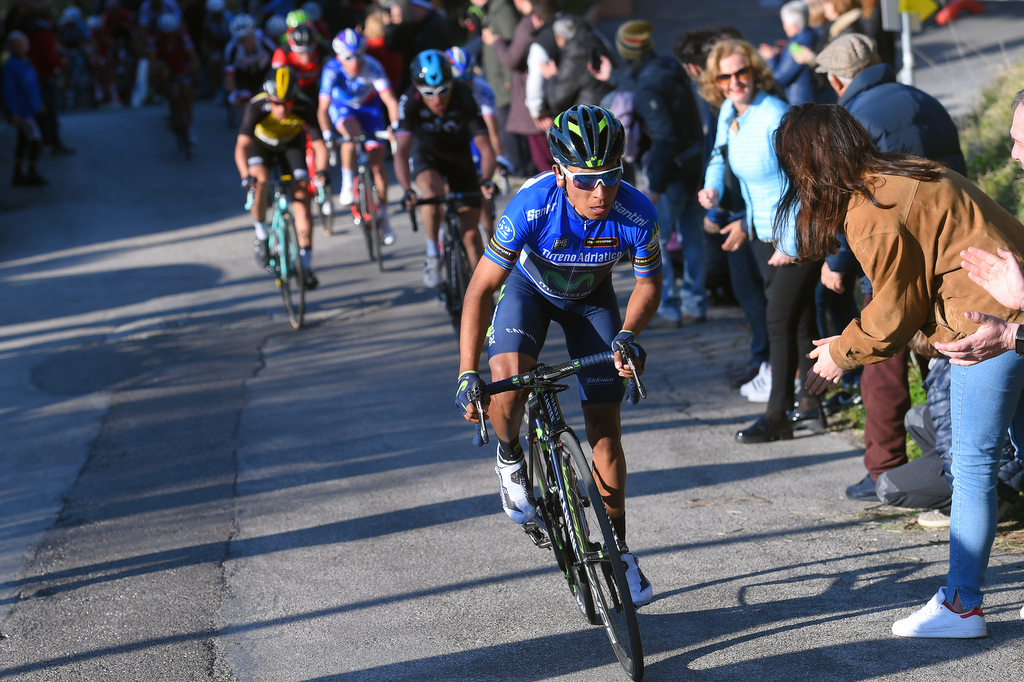
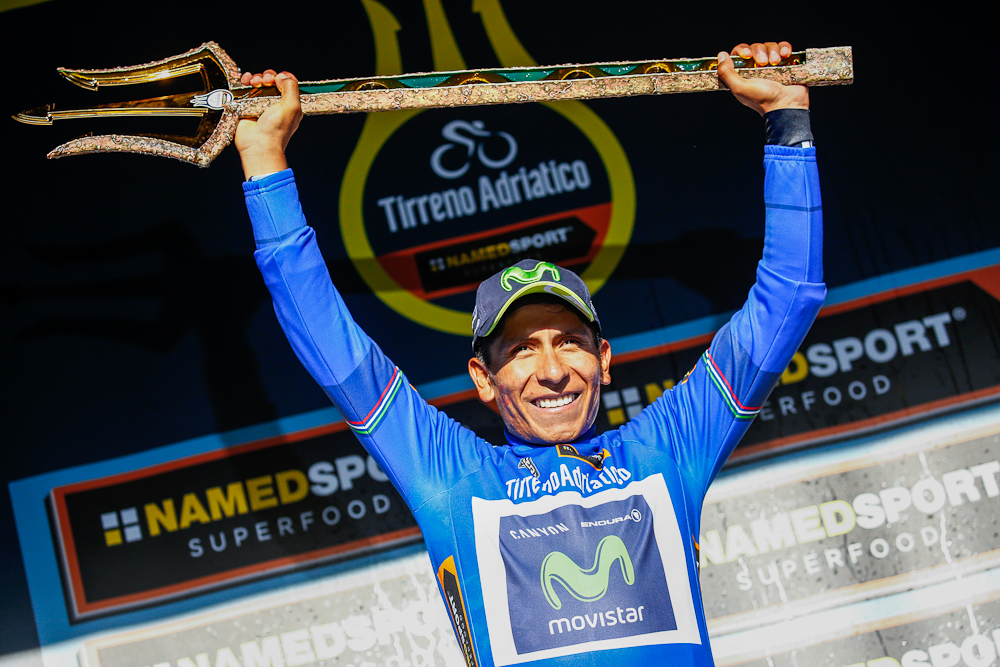
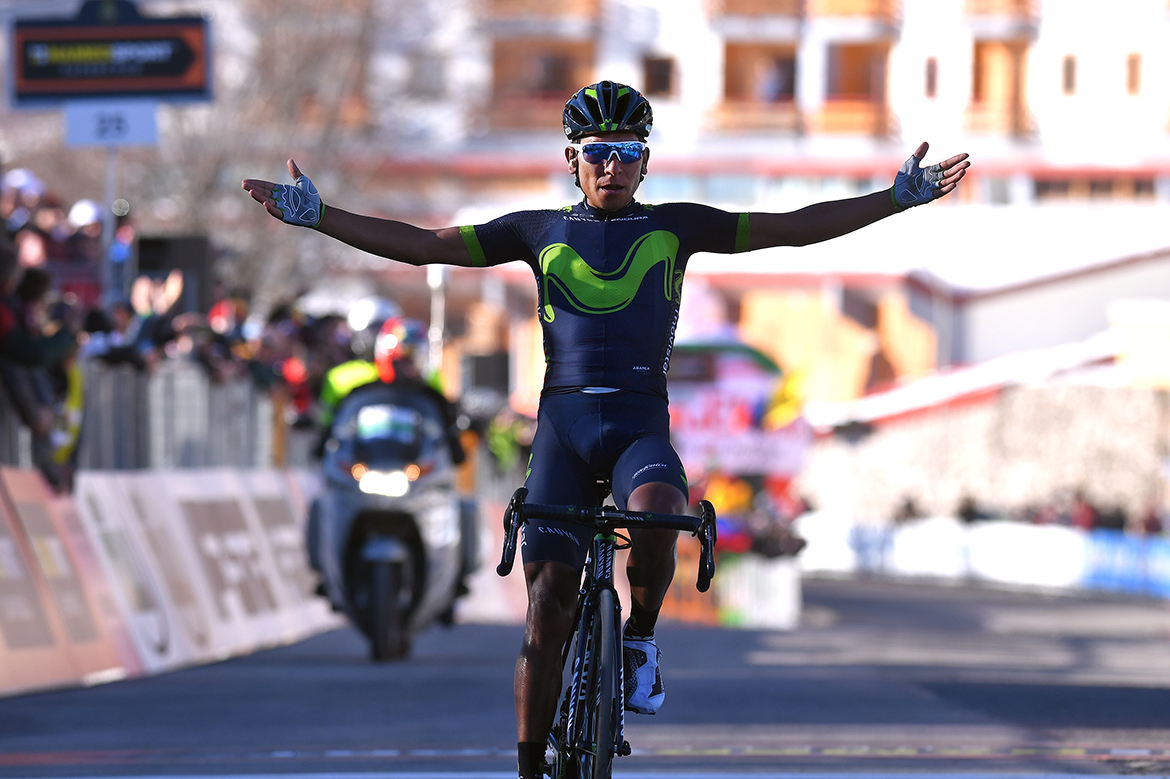
There’s a popular theory that the Giro d'Italia - Tour de France double does no favours whatsoever to a rider's chances of reaching Paris in yellow. For evidence, most will point no further than Alberto Contador in 2015, whose tiredness in July, post his Giro d'Italia win, was palpable. Contador finished a below-expectations fifth that year in the Tour. More evidence? There was Contador in 2011 winning the Giro but, again, below-par in July with an identical fifth placing in Paris (this, of course, before he lost those latter results in any case because of his doping positive).
Quintana: Nibali is my biggest rival for the Giro d'Italia
Quintana to ride the Vuelta Asturias as final Giro d'Italia preparation
Quintana: We couldn't have asked for more in build-up to Giro-Tour double
Giro d'Italia 2017: The essential guide
Quintana shows pre-Giro d'Italia form with Vuelta Asturias stage win
However, Movistar's José Luis Arrieta, one of the directors who has worked the closest with Nairo Quintana over the last few years, has a slightly different take on the question of the pros and cons of the Giro-Tour double. For instance, Quintana's combination of the Giro and Tour this year, Arrieta tells Cyclingnews, is based on the idea that Quintana aims to be in contention for the Giro, but his over-riding goal remains July. The team has hard evidence, Arrieta says, to suggest that a strong, well-fought battle for pink in May can lead to an even stronger performance in the Tour de France.
"When we decided to do the Giro d'Italia, the aim was - and is - to do it to be sure of reaching the Tour de France in good condition," Arrieta says. "If, en route, we can win the Giro d'Italia, well, that'd be great, but the Tour remains the main objective and, together with Nairo, Eusebio [Unzue, team manager], and the rest of the Movistar management, we thought doing the Giro d'Italia could be a good way forward for that.
"With his innate qualities as a racer and with the training and buildup he's had, if everything goes well, then of course Nairo will be in the fight to win the Giro. But the big goal is do the Giro d'Italia to see if, in the process, he comes through to the Tour a little bit fresher and a little bit better than last year.
"So we've done the reconnaissance, the build-up and the training to fight for the Giro, but we are also looking at the Tour."
Movistar's logic behind this approach and their choices of Quintana's Grand Tour challenges this year, Arrieta claims, was partly inspired by how teammate Alejandro Valverde claimed a third place in the Giro and sixth in the Tour - by far the best 'combined' performance of any rider in both Grand Tours - last summer. But there's more to it than that.
Arrieta argues that "Alejandro was the strongest rider in the Tour last year, with the exception of Chris Froome and last year's Tour was the best one Alejandro's ever done". That wasn't justified in the results in Paris, of course, but Valverde was not on a GC mission in last year's Tour, Arrieta points out. However, it turned out to be vital for Quintana's own GC bid in the Tour, where he finished third overall after an uneven series of mountain performances. "Alejandro had a clear idea, too, which was that he would work for Nairo 100 per cent in the Tour and, in fact, thanks to his support, Nairo was able to get on the podium again."
Get The Leadout Newsletter
The latest race content, interviews, features, reviews and expert buying guides, direct to your inbox!
Valverde and Quintana, despite the 10-year gap between them, have similar training methodologies, which makes it viable to use the example of one rider's performance and apply that to another, Arrieta argues. There is also the fact that Quintana's second Grand Tour in the same season, in particular the Vuelta last year - which he won - worked out very well having done the Tour beforehand.
In theory, therefore, Quintana should be able to up his game at the Tour again, having done the Giro all out. But this is, too, a learning process, given Quintana is still only relatively young, and "if the right road to take is through the Giro d'Italia, we don't yet know. But the final verdict will become clear at the end of July."
Rather than face the travel implications of his home being on a different continent, Quintana is set to base himself in Europe between the two Grand Tours. "It's not totally decided but the general idea is that he will stay on here in Europe, with his family, rather than go back to Colombia again after the Giro. Then it'll be onwards to the Tour."
What is totally out of the question is Quintana making a planned abandon during the Giro d'Italia - as has been done by sprinters, in particular - in order to be guaranteed 100 per cent freshness in the Tour. It's not just that the Giro team will be built around Quintana, even if another rider, Andrey Amador, has finished fourth and eighth in the last two Giros. Rather, Arrieta insists there is no way that has even been considered by Movistar - that the Giro is too important. "He's a Grand Tour specialist, and the part that interests us the most about the Giro is the third week," he points out. "So he may not come into the race in top condition, but he should be able to get through those early days and then build towards the third week, when we'll see the 'real Nairo' in action."
In terms of contenders in the battle for pink, Arrieta says "Nibali and Quintana will be up there. Then there's the next, younger, generation. Guys like [Mikel] Landa (Sky) - if he focuses fully on the race, we can't count him out. [Geraint] Thomas (Sky) has done great stage races, but he's always been lacking something in the last part of the Grand Tours. I think we'll see [Tom] Dumoulin (Team Sunweb) develop even more as a GC racer, then there's [Thibaut] Pinot (FDJ). There are lots of possible contenders." He points to Sky as one of the strongest teams in the race, too, arguing that "they've got some unfinished business with the Giro, too, whereas they've done so well in the Tour. That could influence things a lot."
The first week, as well as the third, is crucial in Arrieta's eyes. "Even before Etna, there are two pretty complicated stages in Sardinia. Whenever you race on one of the Italian islands, it makes for tense, hard racing, and lots of 'invisible' climbing. You have to be on your guard. Normally Nairo should go well on that sort of terrain but, at that early point in the race, before the GC begins to be decided, teamwork is always a huge factor."
The time trials in the Giro d'Italia, Arrieta argues, are "always a bit unusual, and that favours the non-specialists. The route of the first one is technical and hilly and that helps guys like Nairo. The second one, in Milan, is flatter but it comes at a point in the race where it is rarely decisive." As for the summit finishes on the Etna and the Blockhaus, he does not expect Quintana to be at his best, given it's so early in the race, "but as final climbs go, they're the type that suit Nairo, so that's good."
On the mental side of handling two Grand Tours, Arrieta is confident in Quintana, now 27 years old.
"Nairo can take pretty much any kind of stress a stage race can throw at him. But where that'll give him the greatest advantage is, logically enough, in the Tour, where the pressure is the greatest and others don't handle it so well," he said. "In the Giro, the results show that he's able to work well in that race and, indeed, in any Grand Tour he's done, he's rarely been off the podium."
Reinforcing the idea that Quintana is doing anything but just "getting the miles in" at the Giro, Arrieta says: "That shows he's been up there in all of them, and what a real winner's mentality he has." Indeed, Quintana's track record since his breakthrough second place in the Tour de France in 2013 has only seen him finish once out of a Grand Tour top three, when he took fourth in the 2015 Vuelta. There has also been his abandon of the 2014 Vuelta after crashing badly twice in three days, once whilst in the lead.
But Arrieta also warns that the Giro d'Italia is by far the most unpredictable of the three Grand Tours.
"For me, it's the Grand Tour with the most beautiful terrain. The Tour is, in terms of the media and historically, the most important. But the Giro's the one where you've got to be on top of things all of the time, the one with the biggest potential for surprises. The day that looks like it'll be the calmest is the day that can be the most complicated."
On top of that, Movistar and Arrieta are more than aware that "this is the year of the centenary Giro, and they've made it even more beautiful for that reason, but more demanding as well." For Quintana, then, that can only make the Giro-Tour double even more appealing - even if it's more of a challenge, and one with a final verdict at the end of the summer, not the end of May.
Alasdair Fotheringham has been reporting on cycling since 1991. He has covered every Tour de France since 1992 bar one, as well as numerous other bike races of all shapes and sizes, ranging from the Olympic Games in 2008 to the now sadly defunct Subida a Urkiola hill climb in Spain. As well as working for Cyclingnews, he has also written for The Independent, The Guardian, ProCycling, The Express and Reuters.
